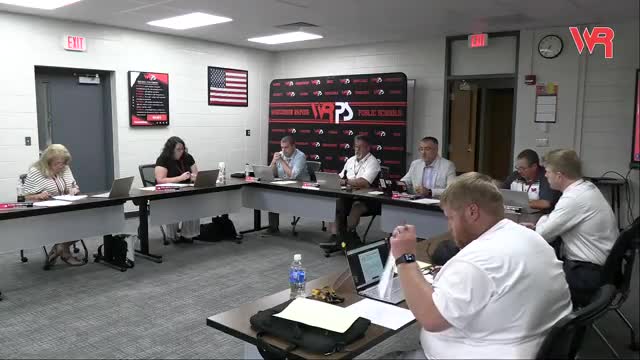Wisconsin Legislators Prepare for Fall Session on Education Policy and Staffing Solutions
August 12, 2025 | Wisconsin Rapids School District, School Districts, Wisconsin
This article was created by AI summarizing key points discussed. AI makes mistakes, so for full details and context, please refer to the video of the full meeting. Please report any errors so we can fix them. Report an error »

The Wisconsin Rapids School Board meeting on August 11, 2025, highlighted significant legislative developments that could impact local education. As the state prepares for a busy fall session, key issues surrounding K-12 education policy are set to take center stage.
One of the most pressing topics discussed was the ongoing staffing shortages in Wisconsin's education sector. With many educators feeling the strain, legislators are considering solutions to ease the return of retired teachers to the workforce. A proposed bill, Senate Bill 170, aims to allow retirees to return to work without losing their annuity benefits. Although it did not pass before the budget was signed, there remains strong support for this legislation among education advocates.
Another critical issue is the anticipated restrictions on operational referenda. With the recent state budget providing no general aid, many districts may seek to increase operational referenda to meet their funding needs. While Governor Evers is unlikely to support legislation that restricts these referenda, discussions around this topic are expected to intensify as districts announce their plans.
The meeting also touched on the funding mechanisms for private and charter schools. Legislators are exploring ways to simplify and expand funding for these programs, which could shift the financial burden from local districts to state appropriations. This proposal, known as "decoupling," aims to ease the financial strain on property taxpayers but has raised concerns about transparency and potential expansion of school choice programs.
Additionally, the board addressed the issue of unfunded mandates, which continue to pile up for school districts. While both parties often propose new curriculum and policy mandates, they frequently do not provide the necessary funding for implementation, leaving districts stretched thin.
A recent study by the Wisconsin Policy Forum revealed that Wisconsin has fallen to 26th in the nation for per pupil education spending, a decline attributed to inadequate state aid increases and shifting legislative priorities. This decline raises concerns about the long-term sustainability of educational funding in the state.
As the fall session approaches, the board anticipates further developments on these issues, with the potential for new legislation that could significantly affect local schools and their ability to meet the needs of students and educators alike. The community will be watching closely as these discussions unfold, with the hope that solutions will emerge to support Wisconsin's educational landscape.
One of the most pressing topics discussed was the ongoing staffing shortages in Wisconsin's education sector. With many educators feeling the strain, legislators are considering solutions to ease the return of retired teachers to the workforce. A proposed bill, Senate Bill 170, aims to allow retirees to return to work without losing their annuity benefits. Although it did not pass before the budget was signed, there remains strong support for this legislation among education advocates.
Another critical issue is the anticipated restrictions on operational referenda. With the recent state budget providing no general aid, many districts may seek to increase operational referenda to meet their funding needs. While Governor Evers is unlikely to support legislation that restricts these referenda, discussions around this topic are expected to intensify as districts announce their plans.
The meeting also touched on the funding mechanisms for private and charter schools. Legislators are exploring ways to simplify and expand funding for these programs, which could shift the financial burden from local districts to state appropriations. This proposal, known as "decoupling," aims to ease the financial strain on property taxpayers but has raised concerns about transparency and potential expansion of school choice programs.
Additionally, the board addressed the issue of unfunded mandates, which continue to pile up for school districts. While both parties often propose new curriculum and policy mandates, they frequently do not provide the necessary funding for implementation, leaving districts stretched thin.
A recent study by the Wisconsin Policy Forum revealed that Wisconsin has fallen to 26th in the nation for per pupil education spending, a decline attributed to inadequate state aid increases and shifting legislative priorities. This decline raises concerns about the long-term sustainability of educational funding in the state.
As the fall session approaches, the board anticipates further developments on these issues, with the potential for new legislation that could significantly affect local schools and their ability to meet the needs of students and educators alike. The community will be watching closely as these discussions unfold, with the hope that solutions will emerge to support Wisconsin's educational landscape.
View full meeting
This article is based on a recent meeting—watch the full video and explore the complete transcript for deeper insights into the discussion.
View full meeting
